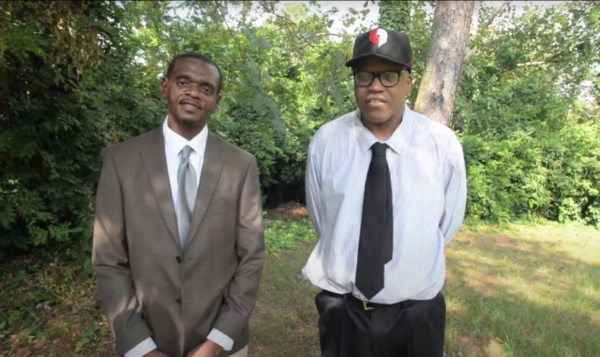Last Friday, a federal jury decided that two brothers who spent more than three decades in prison for crimes they did not commit should receive $75 million from the North Carolina State Bureau of Investigation.
Leon Brown, 63, and 57-year-old Henry McCollum, half brothers, were arrested in 1983 as teenagers, and spent 31 years in prison before they were exonerated in 2014 and pardoned in 2015. The brothers had insisted that for years that the confessions their convictions were based on were coerced.
A Raleigh jury decided after nearly five hours of deliberations, that each brother, both of whom have intellectual disabilities, should receive $31 million, $1 million for each year spent in prison. In addition, the brothers were awarded $13 million in punitive damages. The brothers had been suing former North Carolina State Bureau of Investigation agents Leroy Allen and Kenneth Snead, who were involved in the original investigation in 1983 that set in motion the miscarriage of justice. The NCSBI had been the lone agency not settle with the Brown and McCollum.
“I thank God,” McCollum said outside of the courtroom after the decision, The Raleigh News & Observer reported.

Elliot S. Abrams, an attorney for the brothers, told The Washington Post that the award is the largest-ever for a combined verdict in U.S. history.
“The jury could not have sent a stronger message that the citizens of this country will not tolerate law enforcement misconduct and will no longer blindly believe the testimony of law enforcement over that of marginalized people,” he said.
On Sept. 26, 1983, the body of an 11-year-old girl, Sabrina Buie, was found in a field in Red Springs, North Carolina. She had been raped and suffocated.
On Sept. 27, police questioned 19-year-old McCollum, who was in town visiting his mother. McCollum, whose IQ tested as low as 51, said he’s seen the girl walking to the school but denied any involvement in her death. After rumors swirled at a nearby high school that he was involved because he looked weird, McCollum was taken to the police station and questioned for four hours before he eventually confessed.
Brown, whose IQ tested as low as 49, was identified by McCollum as one other person involved in committing the crime. (McCollum would actually identify four people as involved, but only he and his brother were charged.) When Brown, just 15 at the time, arrived at the station, he also signed a confession. The brothers were arrested on Sept. 29 and charged with capital murder and rape.
No physical or forensic evidence linked the brothers to the crime scene, and when they went on trial in October 1984, the prosecution’s case was based on the coerced confessions. Brown and McCollum were convicted and sentenced to death on October 25.
Brown was the state’s youngest inmate on death row at the time, while McCollum went on to be the state’s longest-serving death row inmate.
In 1988, the North Carolina Supreme Court vacated the convictions because the judge had not informed the jury that they had to determine each man’s guilt or innocence separately. McCollum was reconvicted and sentenced to death, while Brown was found guilty only of murder and sentenced to life in prison. Des Hogan, another of the brothers’ attorneys, told the jury hearing the civil claim that after moving off death row the younger brother “was victimized in unspeakable ways” in prison.
In 2010, an investigation by the North Carolina Innocence Inquiry Commission found that DNA lifted from a cigarette butt at the scene of the crime matched another man, Roscoe Artis, a convicted murderer and serial sex offender who lived next to the field where Buie’s body was found. Artis had been convicted of a similar rape-murder of teenager a month before the trial of the brothers by the same district attorney who prosecuted Brown and McCollum.
On Sept. 2, 2014, the charges against Brown and McCollum were dropped. By then each man had spent 31 years in prison.
Attorneys for the brothers agued that their civil rights had been violated in multiple ways. The confessions were coerced, and evidence was suppressed and fabricated, attorneys said. In addition a more thorough investigation would have indicated that someone else was the killer, they argued.
Although defense attorneys attempted to cast doubt on the brothers’ innocence, the jury rejected their denial of wrongdoing.
“I’ve got my freedom,” McCollum said after the decision was announced, adding, “There’s still a lot of innocent people in prison today. And they don’t deserve to be there.”


